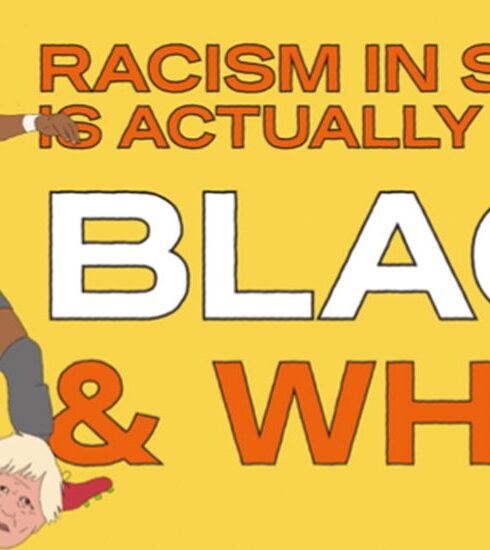Nexus Fixes vaccines
Since the first advancements in the medical field humans have dreamed up ways of cheating death and extending our lives. The largest breakthrough in this dream of immortality arguably came in the form of the vaccination, a way to trick the body into avoiding harm and living longer.
Essentially, the vaccination utilizes the body’s way of remembering and killing the viruses and bacteria that have caused harm in the past.
This can be answered by some pretty basic science.
How a vaccine works – the basics
When a person is infected with a virus that their immune system has not seen before it is slow to develop an immune response and kill the foreign pathogen. This gives a virus a chance to multiply and cause symptoms to occur. Once the immune system catches up to the virus symptoms cease and your body develops immunity to the once-foreign germ. The white blood cells in your body remember the specific chemical makeup of this pathogen and quickly kill it in future encounters.
However, getting a disease first to develop immunity is not always ideal as symptoms can have adverse effects. You could be harmed or die depending on the lethality of a disease. A vaccination will simply contain a small amount of a weakened virus or bacteria or fragments of a dead virus or bacteria. The common misconception of the vaccine is one of “how could injecting myself with a virus be healthy for me in any way?” You’re not injecting yourself with a vaccination, your tricking your body into thinking it has been. On simple terms a vaccination gives you the positives of catching a disease without the negative symptoms. A vaccination can come with its own side effects. Very rarely some patients have an allergic reaction which can be fatal but this can be solved with a shot of adrenaline. Usually there is a 15-30 minute waiting period after a vaccination so you can be seen should this reaction develop.
When a population vaccinates for a specific pathogen we develop herd immunity. There isn’t a large enough population without immunity for a virus to spread and cases become rarer and rarer. With vaccination, if done properly, we have the tools to eradicate diseases or extremely reduce the harm they have on our communities.
In recent times the value of the vaccination has been degraded by self-taught scientists and healing-crystal connoisseurs. This is causing pathogens, which were on the precipice of extinction, to resurge and allowing them to continue to cause harm. The measles and mumps are both having resurgences in first world countries. How has this swift and dangerous change in attitude come about?
The dawn of the modern Antivaxxer
There has been some controversial question over the vaccine and whether or not it is truly beneficial to human health. Things such as religion and conflict have previously hindered attempts at administering vaccines across populations. The Father of the modern form of vaccine hesitancy is Briton, Andrew Wakefield. Wakefield, a former physician was behind a fraudulent study in 1997 which struck fear into the misinformed public, the fear of their child developing autism. Despite there being vast amounts of research which contradicts Wakefield’s claims, this idea of vaccines being linked to autism persists. The fear created by Wakefield culminated into two films, Vaxxed and Vaxxed II, both directed by himself. The films, along with Wakefield’s fraudulent paper have gone on to act as a catalyst in modern vaccine hesitancy and have led to concern of some aspects of vaccine. Concerns such as Metal contamination and its link to autism
The Main Arguments Of Vaccine Hesitancy
Metals
One of the main arguments against vaccines is that they contain metals such ethylmercury, aluminium and formaldehyde.
Ethylmercury was once very commonly used in vaccinations as a preservative. Although mercury is a naturally occurring substance it can be harmful in large concentrations which can cause unease about it’s presence in a routine vaccination. In 1997 children were receiving 3 vaccinations at a time which resulted in an intake of ethylmercury higher than the recommended safe level. There have been numerous studies which disprove a link between this substance and autism or other harmful effects, however the substance has been removed from nearly all vaccines as a precautionary measure.
Aluminium is used to enhance a vaccine’s effectiveness by strengthening the response by your immune system. The concentrations of aluminium present in vaccines is far less than the naturally occurring aluminium in the bloodstream and less than the amount we intake daily in our food and water. There is no cause for concern over aluminium.
Formaldehyde is used to weaken bacteria and viruses. It is naturally occurring in the body but high doses can have negative impacts. The amount of formaldehyde present in a vaccine is around 70 times less than that of a newborn baby.
Autism
Spearheaded by Wakefield, the fear that vaccination can cause autism has always been at the forefront of anti-immunization rhetoric. The only point that can be made here is that one study found a link to autism and vaccination, a study that has now been discredited and deemed fraudulent. This is outweighed by countless other studies which have shown that there is no link between vaccinations and autism. If you want to find this information for yourself it is important that you find articles that have been peer-reviewed by credible sources.
The accomplishments of the vaccine
What the anti-vaccination movement doesn’t seem to understand or at least acknowledge is the colossal gains humans have made on life threatening ailments. People have been made immune to the diseases that whole civilizations lived in fear of for centuries and new cases and outbreaks of these diseases have plummeted.
Smallpox was perhaps the deadliest virus in human history, killing an estimated 500 million people over the course of its existence. It had a mortality rate of 60% in adults and 80% in children. Survivors were left scarred for life by the unmistakable fluid-filled blisters which spread over the body. It was purposely used by Europeans to wipe out native populations in the colonial era. It was the most devastating and significant virus on the planet for centuries. It is also the only disease to be officially declared extinct by the World Health Organization (WHO). This was made possible by WHO’s aggressive smallpox campaign in the 60’s and 70’s. The goal was to achieve 80% vaccine coverage in every country and then isolate any following cases from the community. The last wild case of the virus was seen in 1977 and was declared eradicated in 1979.
Since then many diseases are following suit. Polio is now on the brink of extinction with extensive vaccination efforts restricting it to Afghanistan and Pakistan with less than 100 outbreaks occurring every year. In the 40’s and 50’s, polio would kill or paralyse over half a million people every year.
The rise of preventable disease such as measles and mumps is being mirrored by an increase of vaccine hesitancy, particularly in first world countries. In 2019, New Zealand saw the largest measles outbreak since the 30’s. Studies have shown that this is directly related to the around 30% of New Zealand adults being “skeptical” about the safety of the vaccination. With many developed countries following a similar trend the number of cases of these preventable diseases is set to rise in the next decade.
Coronavirus
The importance of the vaccine is being highlighted currently as Coronavirus or COVID-19 ravages the world. The virus which is newly formed and unfamiliar to our immune system has so far resulted in well over half a million deaths and around 12 million cases worldwide. It has ruined economies and families alike. And until a vaccine is produced humans are left vulnerable.
Importance
The underlying importance of the vaccine isn’t just about protecting yourself. The idea of the vaccine perhaps best represents the values of community and compassion within a population. The fact that you get vaccinated means that you are less likely to pass on a disease to others. Others can be babies too young to get vaccinated or cancer patients whose immune system has been wiped out by extreme chemotherapy and are therefore immunocompromised. It is for the vulnerable that we must get vaccinated.
The sacrifices of those patients before us and the mass vaccination program have allowed us to live freely and move freely, without the fear and the stress of a life threatening disease lurking around every corner. Life has been made easier and longer and it’s thanks to the vaccine.





